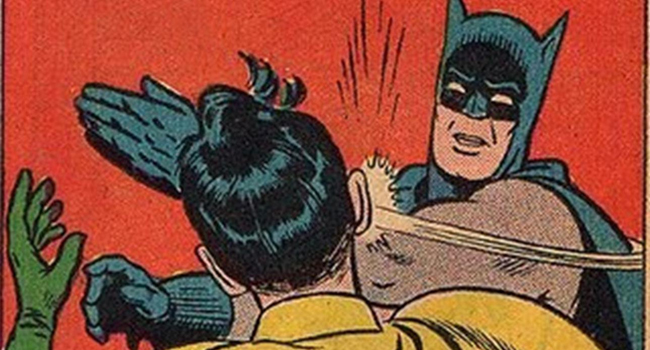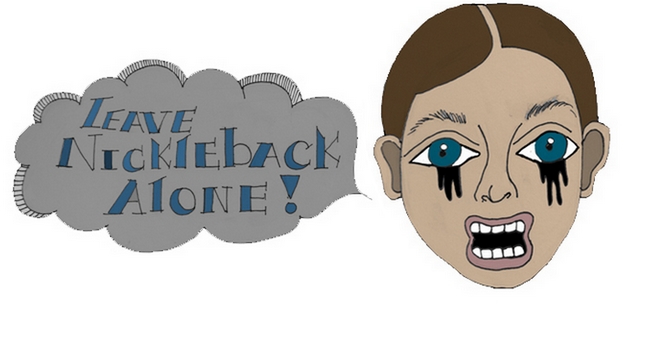Thrifting for that perfectly worn and tattered concert t-shirt, rifling through stacks of dusty vinyl in search of that elusive unscratched disk, the countless reissues of classic rock albums gracing Best Buy shelves in suburbs everywhere—we are a generation obsessed with nostalgia. And this alarming fixation on the past is only the beginning of a much larger problem. It’s not the nostalgia, but the reason behind it. Why does the current generation yearn for a time when they haven’t even come close to experiencing? Is it because the generation before us was so creatively innovative, or does our generation have nothing artistically worthwhile to offer? Caught in the vicious cycle of reinterpretation leaves us at risk for being the most unoriginal generation yet.
We live in a society that drags its heels in the metaphorical mud for fear of leaving something—anything—behind. While this may inspire an appreciation for the times we live in now, maybe this hinders us. Maybe we are our own worst enemies because we can’t seem to let go of the artistic innovations that were made before we were born.
Edward Sharpe and the Magnetic Zeroes are masters of their carefully crafted pass-the-peace-pipe hippie pop. But are these tie-dye wearing folksters really original in their own right? Or are they original because they’re emulating a style that is no longer in its heyday? These Woodstock ragamuffins are followed by groupies sporting cheap plastic peace sign jewelry, clad in crochet bikini tops; the music becomes lost and the cultural notes become the main focus. And if no one is paying attention to the music, then what’s the point? Gathering around a campfire to sing quirky rhymes about that one person who is “home,” is hollow if it was written with the intention of emulating a Newport attendee’s last trip. But popular taste disputes this disingenuousness and condones these flimsy musical copies in lieu of original artists struggling to remain innovative.
Artists resurfacing old blues and rock aesthetics like Gary Clark Jr., The Black Keys, and Jack White are all tapping into the nostalgia brewing within all age groups across the board. The older generation is craving something new to connect to that reminds them of their own music, something familiar, while the young generation is disenchanted with the current state of the music industry and craves what their parents were given—a musically golden upbringing.
Cue the fuzzy drop-D riffs and cryptically poetic lyrics—not quite a tribute but stepping the line beyond homage; this is music today.
One common complaint against the state of the music industry today is that nothing new can be done, and if there is, no one is doing it. As much as both critics and fans hate to admit it, this is true and false. New pursuits in music will always exist. There will always be a genre unexplored, a chord sequence uninvented, a movement unprecedented. While change lines the musical horizon, something harnesses artists back: the intimidation of time. The cloud of intimidation constantly looms over today’s artist, hindering the possibility of innovation and hampering artistic development. Walking the fine line between inspiration and emulation has proven to be the greatest challenge to our current musical generation.
The artists may not be the only ones at fault. Time and time again artists and bands are reviewed and are inevitably compared to an artist past. While these comparisons may be flattering at first, the title eventually settles in and causes pressure. It imposes a completely unwelcome standard upon the artist and nudges them toward the path of emulation. While it may be a more popular or successful path, it’s not necessarily the most creative one. How many artists have been dubbed the next Arcade Fire and fizzled out? And the spawn of Robert Plant’s vocals with Bob Dylan lyrics? Long forgotten. Though there are trailblazers today, it’s a high risk-high reward move. It’s the painfully impersonal economics of music.
As for whether or not our generation will endure the trials of time—that’s something we can’t answer. Knowing that answer is kind of like the artistic process—the answer will be murky and unknown until the final product is examined with fresh eyes. But for this conundrum, a new set of eyes means the passage of time. And until we achieve this newfound clarity, only then will we know if our generation will leave an imprint on the creative fabric of the 21st century of life and music.
No one is remembered for what they recreate. And if Generation X has any hope of being remembered in culture, we’d better pop off those headphones, drown out the criticisms and start making some noise. Because that’s how you become an original, that’s how you get remembered.



